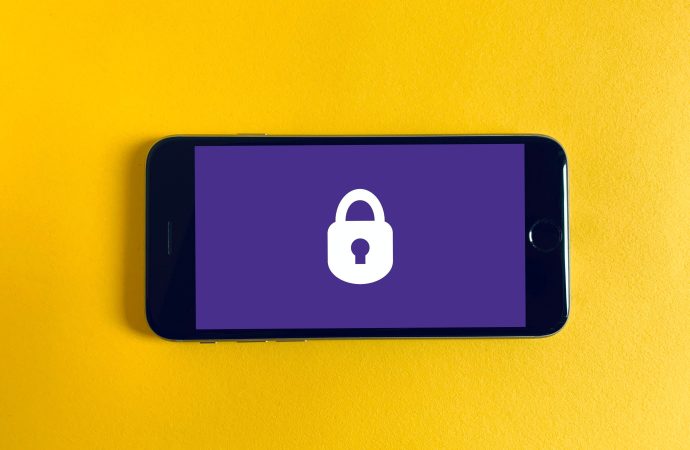In today’s digital age, social media and big data have become an integral part of our daily lives. We use them to connect with friends and family, share our thoughts and experiences, and even make important life decisions. But while these technologies offer many benefits, they also come with a significant downside: privacy concerns. With
In today’s digital age, social media and big data have become an integral part of our daily lives. We use them to connect with friends and family, share our thoughts and experiences, and even make important life decisions. But while these technologies offer many benefits, they also come with a significant downside: privacy concerns. With so much personal information available online, it’s easy for companies to gather data about us without our knowledge or consent. In this blog post, we’ll be taking a closer look at the impact of social media and big data on your privacy – from how they affect your online presence to what you can do to protect yourself in this ever-evolving landscape. So buckle up – let’s dive into the world of digital privacy!
The Proliferation of Social Media and Big Data
In recent years, there has been a proliferation of social media and big data. This has had a significant impact on our privacy. Here are some things you need to know about the impact of social media and big data on your privacy:
1. Social media and big data can be used to track our movements and activities.
2. Social media and big data can be used to target us with ads and other content.
3. Social media and big data can be used to influence our opinions and behavior.
4. We can take steps to protect our privacy from social media and big data, but we need to be aware of the risks.
How Social Media and Big Data Collect Your Personal Information
Most social media platforms and websites collect some data about their users. This is usually done through cookies, which are small pieces of code that are stored on your computer when you visit a website. Cookies allow websites to track your online activity and collect information about you, such as your IP address, browser type, and operating system.
Some social media platforms also collect information about your offline activity. For example, Facebook has been known to track its users’ offline activity by collecting data from their credit and debit cards.
Big data is a term used to describe the large amount of data that is being generated every day. This data comes from many sources, including social media platforms, websites, sensors, and cameras. Big data can be used to improve our lives in many ways, but it can also be used to invade our privacy.
One way that big data can be used to invade our privacy is through predictive analytics. This is a type of artificial intelligence that uses data mining and machine learning to make predictions about people’s behavior. Predictive analytics can be used to target ads at specific individuals or groups of people. It can also be used to influence people’s behavior in other ways, such as by showing them content that is designed to change their opinion on a topic.
Another way that big data can be used to invade our privacy is through facial recognition technology. This technology can be used to identify people from images or videos. It is often used
The Risks of Social Media and Big Data to Your Privacy
There are a number of risks associated with social media and big data that could potentially impact your privacy. For example, if you share personal information on social media sites, it could be accessed and used without your permission. Additionally, the way in which social media and big data are collected and stored can also pose risks to your privacy. For instance, data collected by social media companies can be sold to third-party organizations without your consent, and this type of data can be used to target ads or influence your behavior. Finally, hackers can access social media and big data to obtain sensitive information about individuals, which could lead to identity theft or other malicious activities.
Steps You Can Take to Protect Your Privacy from Social Media and Big Data
There is no such thing as complete privacy when it comes to social media and big data. However, there are steps you can take to minimize the amount of information that is shared about you.
Here are some tips:
1. Be aware of what you are sharing. Make sure you understand the privacy settings for each social media platform you use and only share information that you are comfortable with making public.
2. Keep your personal information to yourself. Don’t share your home address, phone number, or other sensitive information on social media or in online forums.
3. Use a pseudonym if possible. If you must use your real name online, consider using a nickname or initials instead of your full name. This can help to reduce the amount of personal information that is available about you.
4. Use strong passwords and two-factor authentication when available. This helps to protect your accounts from being hacked and your information being stolen.
5.) Be careful what you click on. Avoid clicking on links from unknown sources, as these could lead to malicious websites that may try to collect your personal data.
6.) Opt out of data collection whenever possible. Many websites and apps collect data about their users for marketing purposes. You can usually find an opt-out option in the privacy settings of these websites and apps
Conclusion
In today’s digital age, it is essential to be aware of the ever-increasing influence of social media and big data on our privacy. By understanding what these platforms can do with our personal information and by actively taking steps to protect your own data, you can limit their power over you. Knowing how they track us and use our data helps not only keep your information safe but also gives us control of who has access to it in the first place. Taking action now will help ensure that we are able to keep our private lives private in this digital world.





















Leave a Comment
Your email address will not be published. Required fields are marked with *